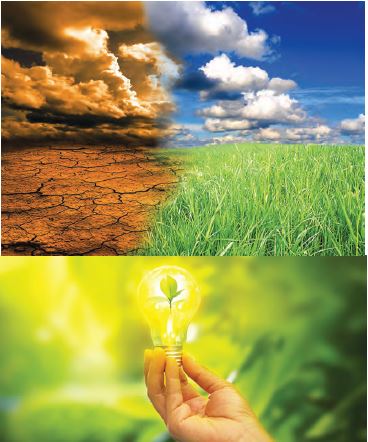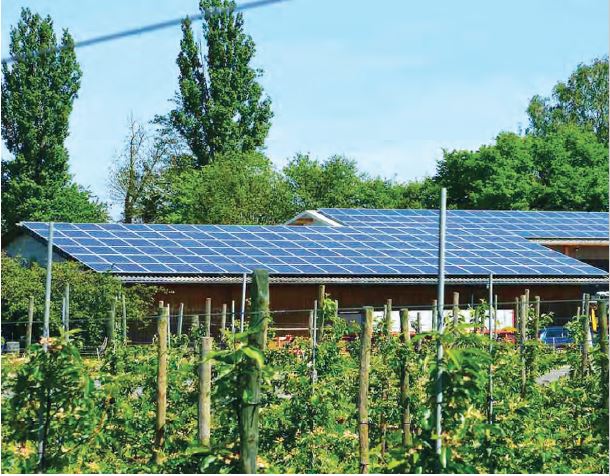 |
|
 |
STORY
DETAILS |
 |
|
| |
| |
 |
| Cover Story
|
 |
 |
| Textiles’ – the word brings up images of beautiful drapes – cotton, silk, chiffon, lace. Whether it is the material draped on the figurine of the lady f... |
|
 |
| |
read more... |
 |
|
 |
Lead Article
Textiles the word brings up images of beautiful drapes cotton, silk, chiffon, lace. Whether it is the material draped on the figurine of the lady from Mohenjadaro, the stylish drapes of Cleopatra, the ball dance gowns of the Victorian Era or the lovely dresses worn by our own queens and princesse...
read more... |
|
 |
| Articles |
 |
 |

|
|
Tapping Sustainable Energy Alternatives
|
|
|
The second lead article, which is also focus article, is written by Shri N Bhadran Nair. Citing a report of the World Health Organisation, the author has advocated for tapping sustainable energy alternatives
|

|

|

|

|
|
Financing Renewables in India
|
|
|
The third article is written by Shri P C Maithani, Adviser, Ministry of New and Renewable Energy. He has focussed on renewable energy resources
|

|

|

|
|
Steps to Achieve India’s Solar Potential
|
|
|
The special article is written by Sumant Sinha, Chairman and Managing Director of ReNew Power. He opines that India must also honour its global commitments on curbing greenhouse gas emissions
|

|

|
|
|
|
|
|
|
|
The Role of India’s Informal Economy
Barbara Harriss-White |
|
 India is probably unique in the world in the size and significance of her informal economy. While the concept has been much criticised by academics1,‘informality’ refers to the vital reality of unregistered activity that is not regulated either by the state or necessarily according to its law. It is well understood by the public and thus has sufficient conceptual traction to have needed the attention of planners. In this paper, using the insights of recent research2, I will cover its roles and their implications for policy and planning. Structure and relations First, the informal economy (IE) is not transitory. The concept was developed (for conditions in West and East Africa) in the 1970s when it was expected that unregistered activity would be rapidly subsumed under the formal, nation-building processes of industrialisation (including that of agriculture), urbanisation and banking. With the passage of the ‘development decades’, it became clear that the IE was hard-wired into the structure of many economies in which formal registered activity not only directly exploited the IE through subcontracting but also gained from the cheap products and services it generated. Latterly, the ubiquity of informal (unregistered) wage labour3 has expanded the scope of the concept, even while it was being criticised. India is probably unique in the world in the size and significance of her informal economy. While the concept has been much criticised by academics1,‘informality’ refers to the vital reality of unregistered activity that is not regulated either by the state or necessarily according to its law. It is well understood by the public and thus has sufficient conceptual traction to have needed the attention of planners. In this paper, using the insights of recent research2, I will cover its roles and their implications for policy and planning. Structure and relations First, the informal economy (IE) is not transitory. The concept was developed (for conditions in West and East Africa) in the 1970s when it was expected that unregistered activity would be rapidly subsumed under the formal, nation-building processes of industrialisation (including that of agriculture), urbanisation and banking. With the passage of the ‘development decades’, it became clear that the IE was hard-wired into the structure of many economies in which formal registered activity not only directly exploited the IE through subcontracting but also gained from the cheap products and services it generated. Latterly, the ubiquity of informal (unregistered) wage labour3 has expanded the scope of the concept, even while it was being criticised. |
|
|
|
|
|
|
|
|
|
|
 |

|
Regional Languages
|
 |
|
|
 |
|
Regular
Column |
|
J&K Window : |

|
|
Do you know? : What is Forensic Auditing |
Forensic auditing refers to the auditing with the main aim to employ accounting techniques and methods to gather evidence to investigate the crimes on financial front such as theft, fraud etc.

|
|
|
 |
|
 |
 |